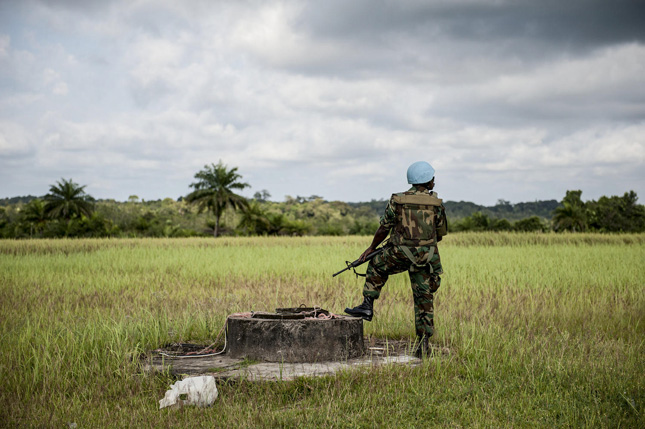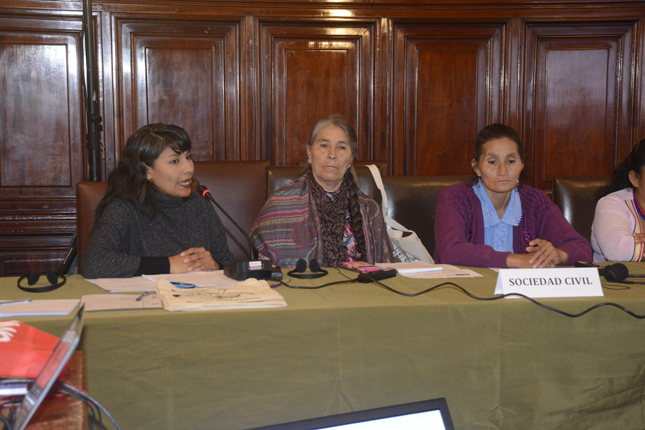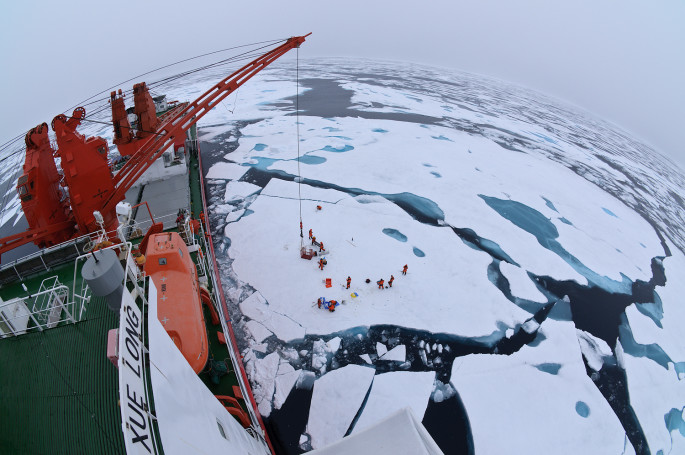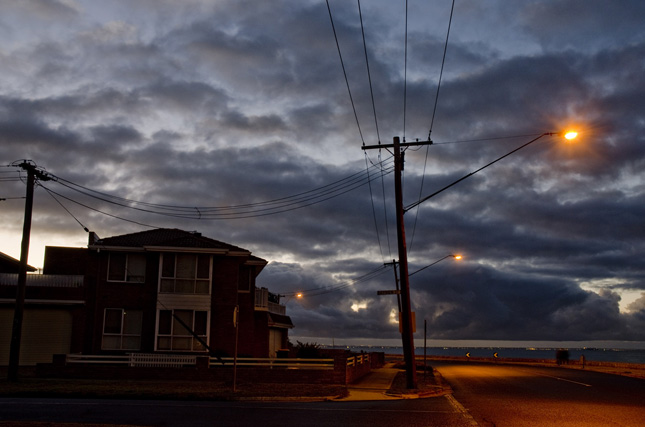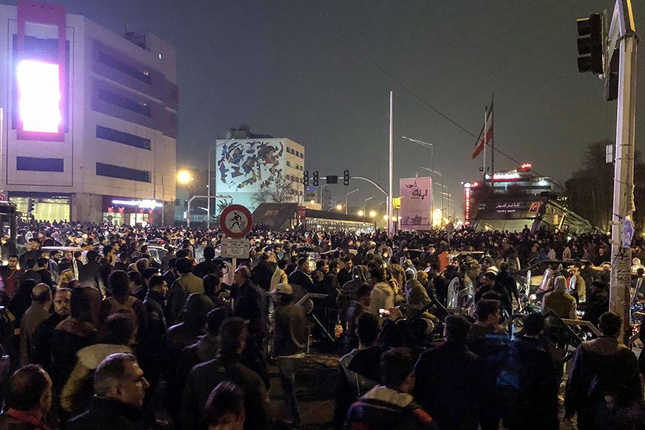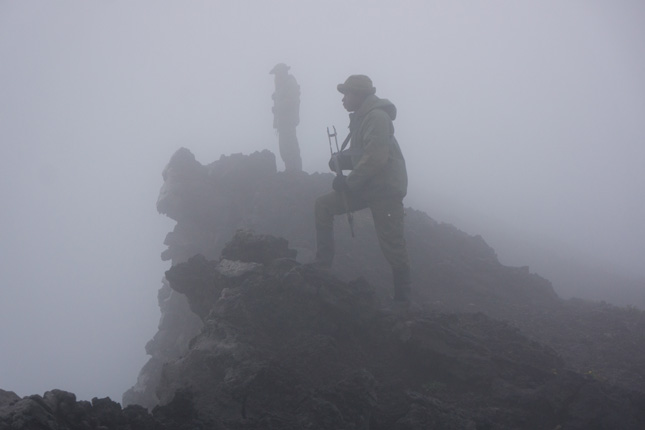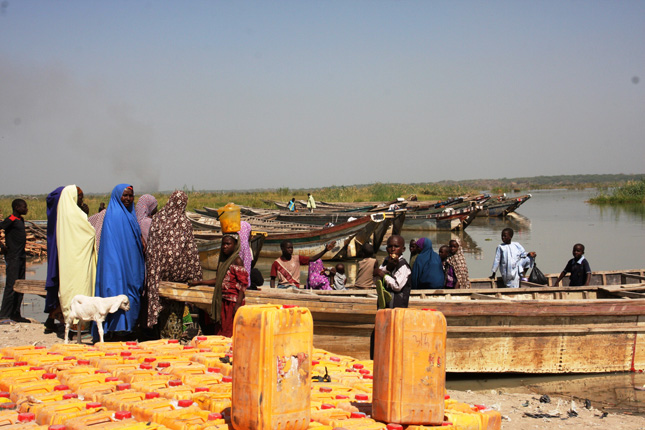-
A Paradigm for Peace: Celebrating “Environmental Peacemaking”
›March 20, 2018 // By Wilson Center Staff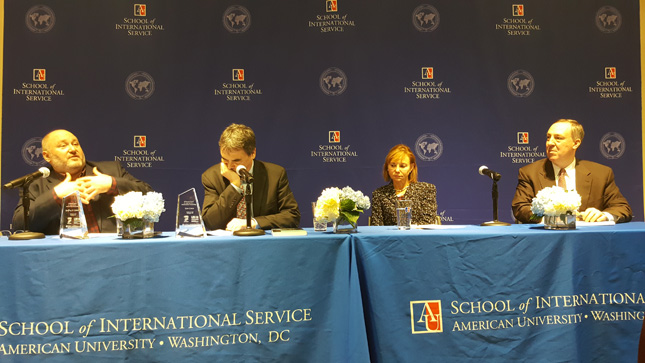
“Most fundamentally, we turned the ‘resource scarcity drives conflict’ argument on its head and asked, ‘Can environmental interdependence drive cooperation in ways that can be harnessed to build trust and contribute to conflict prevention and peacebuilding?’” said Geoff Dabelko, Associate Dean at Ohio University’s Voinovich School of Leadership and Public Affairs, about Environmental Peacemaking, which was one of the first books to investigate these questions. In the 15 years since he and Ken Conca, a professor at American University’s School of International Service, published their edited volume, the idea that shared environmental issues could be used to build peace has become a focus of innovative research, policy, and programs.
-
The Nuts and Bolts of a Climate-Conflict Link in East Africa
›
A recent article in Nature Climate Change has spurred a new chapter in the lively scholarly debate over the potential relationship between climate change and violent conflict. We agree with the article’s authors that there are several forms of sampling bias in this field, including how regions are selected for analysis. But simply addressing this sampling bias will not resolve many of the academic controversies that have raged since the mid-2000s. Our recently published study in International Studies Review examines the mechanisms connecting climate change or its consequences to violent conflict and concludes that to move this research agenda forward, researchers must pay deeper attention to the “nuts and bolts” that shape both climate-related conflicts and our understanding of them.
-
Another Deadly Year for Environmental Defenders, But Momentum Increases for Protecting Environmental Human Rights
›
In 2017, four environmental activists were murdered every week on average—most of them in Latin America, and most of them targeted for protesting industries like logging or mining. These shocking numbers may finally start to taper off, if three new initiatives launched just this month are successful at protecting people’s right to a clean environment—and its defenders.
-
China Has Arrived in the Arctic: Q&A With Sherri Goodman
›
To further its goals to strengthen the global economy, China has already invested $300 billion of its pledged $1 trillion towards its Belt and Road Initiative—a massive infrastructure investment plan that spans 60 countries across Southeast Asia, Central Asia, Africa, South Asia, the Middle East, and Eastern Europe. China’s initiative will shift the world’s political, environmental, and economic landscape.
-
The Sophomore Curse: Sampling Bias and the Future of Climate-Conflict Research
›
Recently, Nature Climate Change published a new study demonstrating significant sampling bias in the research that informs our understanding of whether climate change will accelerate human conflict. I was a peer reviewer of “Sampling bias in climate–conflict research,” and I wrote an accompanying “News and Views” piece summarizing it. I am fascinated by the issue of sampling bias; it’s perhaps the most consequential and least recognized form of bias in the social sciences, with potentially massive consequences for what we (think we) know about a host of phenomenon.
-
Uncomfortable Companions: Fertility Decline and Ideology in Iran
›
It should be an excellent time to be a young Iranian: High school and college enrollments in the Islamic Republic rank near the top of Muslim-majority countries. Women have only about two children on average, compared to 6.5 in the mid-1980s. And childhood mortality is projected to approach North American levels in the next 15 years. Yet, as the recent protests show, many young Iranians feel left out. Job growth—especially for young adults—has failed to keep pace with development, while persistently high rates of inflation steadily drive up the cost of living and cut deeply into Iranians’ savings.
-
Environmental Cooperation Can Facilitate Peace Between States
›
Environmental stress and climate change can accelerate instability and conflict—but shared environmental problems can also be a source of cooperation and facilitate peacemaking between states. Transnational environmental problems are common threats and often cross national boundaries, requiring international cooperation to address. In turn, this cooperation can provide a good entry point for building trust and cooperation.
-
The Role of Water Stress in Instability and Conflict
›
“The demand for water will not be linear,” said Vice Admiral Lee Gunn (USN-Ret,), currently vice chairman of the CNA Military Advisory Board, at a recent Wilson Center event on water and security. As people’s quality of life improves, “the demand for water will increase as well. And so the stresses that we already see around the world—the arguments over basin rights for water, the depletion of water in major cities around the world—we think will aggravate problems that already are beginning to manifest themselves,” he said.
Showing posts from category security.


